‘A dead body talks if you ask the right questions’: Ex-war crimes investigator on the grim task facing experts in Ukraine
‘Without a doubt’ war crimes committed in Bucha, British expert tells Andrew Buncombe

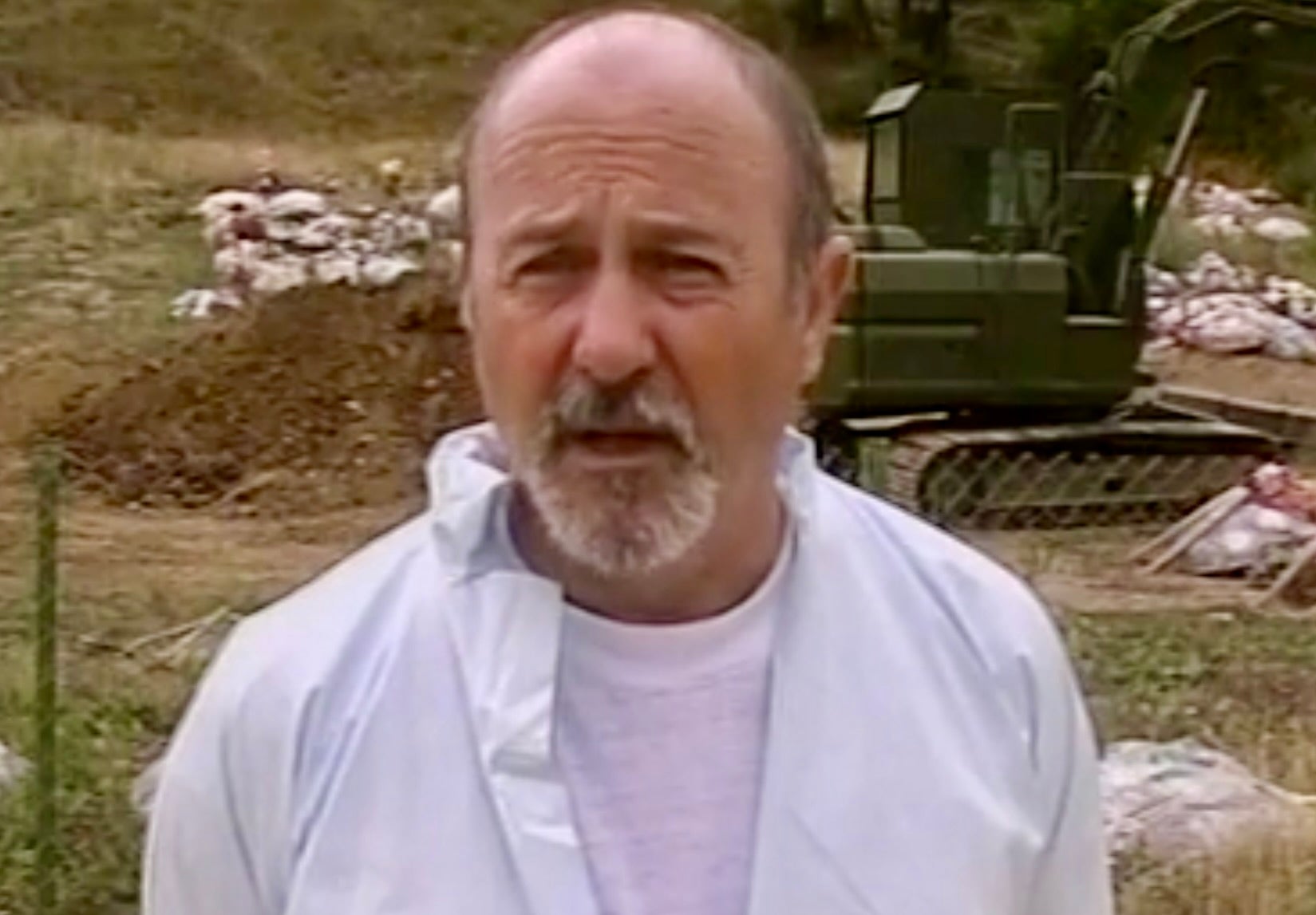
Ron Turnbull like to say that a dead body can talk if you ask the correct questions of it.
The former Metropolitan Police officer also says that forensic experts and war crimes investigators – both titles he used to hold – have a duty to ask these questions as they examine human remains. Only then can they determine what happened, and in doing so speak out on the person’s behalf to secure some sort of justice.
“These people were treated inhumanely and they’re never going to have a voice,” he tells The Independent. “Our job was to give them that voice, and be able to determine how they were killed.”
He adds: “It’s the voice that the perpetrators of that death disallowed them.”
Turnbull is now 74 and retired. For much of its career, he worked as a senior forensics investigator for the Met, in a team known as the Flying Squad. (He was present when the late actor John Thaw visited the offices, trying to pick up dialogue before they filmed The Sweeney based on the hard-knuckled detectives working there.)
For a decade, he was attached to United Nations teams investigating war crimes in the Balkans. He was part of the probe into the Srebrenica massacre, where up to 8,000 Bosnian Muslim men and young boys were killed by Serb forces under the control of Ratko Mladić.
He helped recover the bodies of scores of Kosovans, also killed by Serb forces and buried in mass graves close to Pristina, the capital.
In recent days, Turnbull, who lives in Hastings on England’s south coast, has been speaking with his former colleagues about the alleged atrocities in Ukrainian cities such as Bucha. They agree it feels very similar.
“I’ve been talking with these people, and we’ve been saying it’s like deja vu,” he says.
Turnbull, who in 2020 published a memoir From the Flying Squad to Investigating War Crimes, says the first priority in any investigation into a possible war crime is to secure the scene and make sure evidence isn’t contaminated.
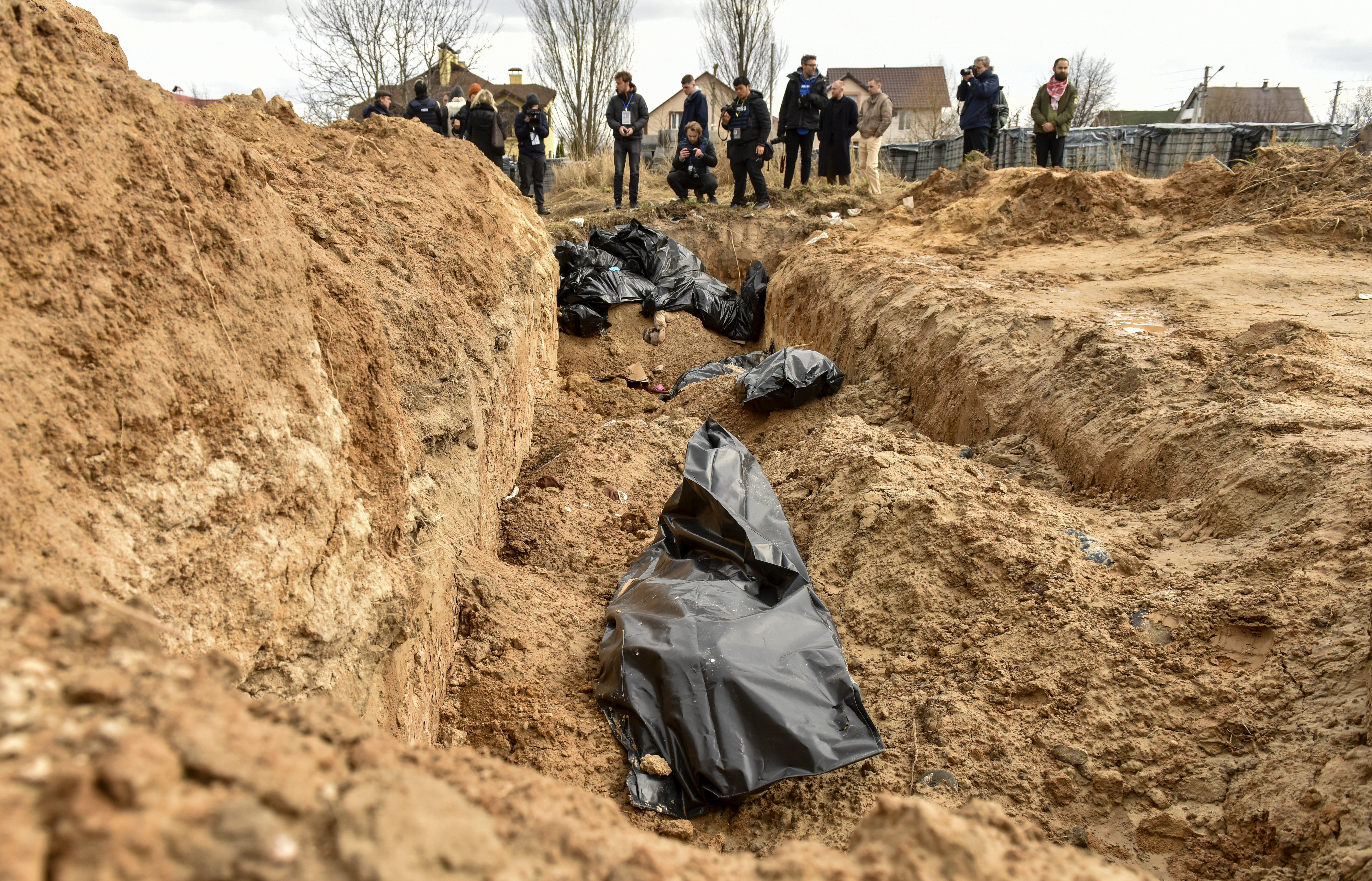
In the Balkans, it was mainly Nato soldiers, who took over peacekeeping operations from the UN in 1995, who would secure the permitter of a site. Then his team would set about gathering evidence, pictures or anything that could be of use.
In the case of a mass grave, they would fly over the site in a helicopter to get a simple aerial photograph to show the outlay of the area.
Crucially, they would then speak to witnesses or even survivors of such a killing.
“Some of them had actually gone through it themselves and been left for dead but survived. And you put those all together,” he says.
At the site of such killings, it was often possible to identify “shooting points”, where people had been lined up and executed. Bullet fragments can be recovered from trees or walls, spent cartridges collected from the ground.
Then the team started to examine the bodies, clambering into recently dug ground, for fragments of clothing or other identifying materials, or clues that might indicate someone had been summarily executed, such a shot to the back of the head.
“At one or two of the scenes we went to, we found that quite a large number of the men had been gagged, had been blindfolded, had been tied, some of them with barbed wire, both ankles and wrists,” he says.

Every body is then carefully removed and a post-mortem examination carried out by a pathologist to rule out any possibility that someone had been killed in a car accident or some such.
“So they could actually say, of the 38 bodies that we received this week from that location, we can say definitely 36 of them were shot in the back of the head,” he says.
Turnbull would finish his career as the head of the Evidence Unit at the United Nations International Criminal Tribunal for the former Yugoslavia (ICTY), the court specially established to try the senior leaders and military commanders responsible for thousands of deaths in the succession of conflicts that erupted after the break-up of Yugoslavia.
20 years later, after paying a return visit to the Balkans, he told Sussex World of his first trip in 1995 to Cerska, a village close to Srebrenica.
“We passed through small homesteads that had been systematically and dramatically imploded, reducing them to mere rubble,” he said. “Shockingly obvious, and a vivid reminder of the ethnic cleansing which had occurred here, was the existence of recognisable national Serbian signs daubed in paint on some houses that stood relatively undamaged.”
In August 2020, the Associated Press filmed Turnbull and his team in the village of Makovc, four miles from Pristina, removing bodies of Kosovans killed by Serb forces in the conflict the previous year. Bulldozers were used to clear some of the soil.
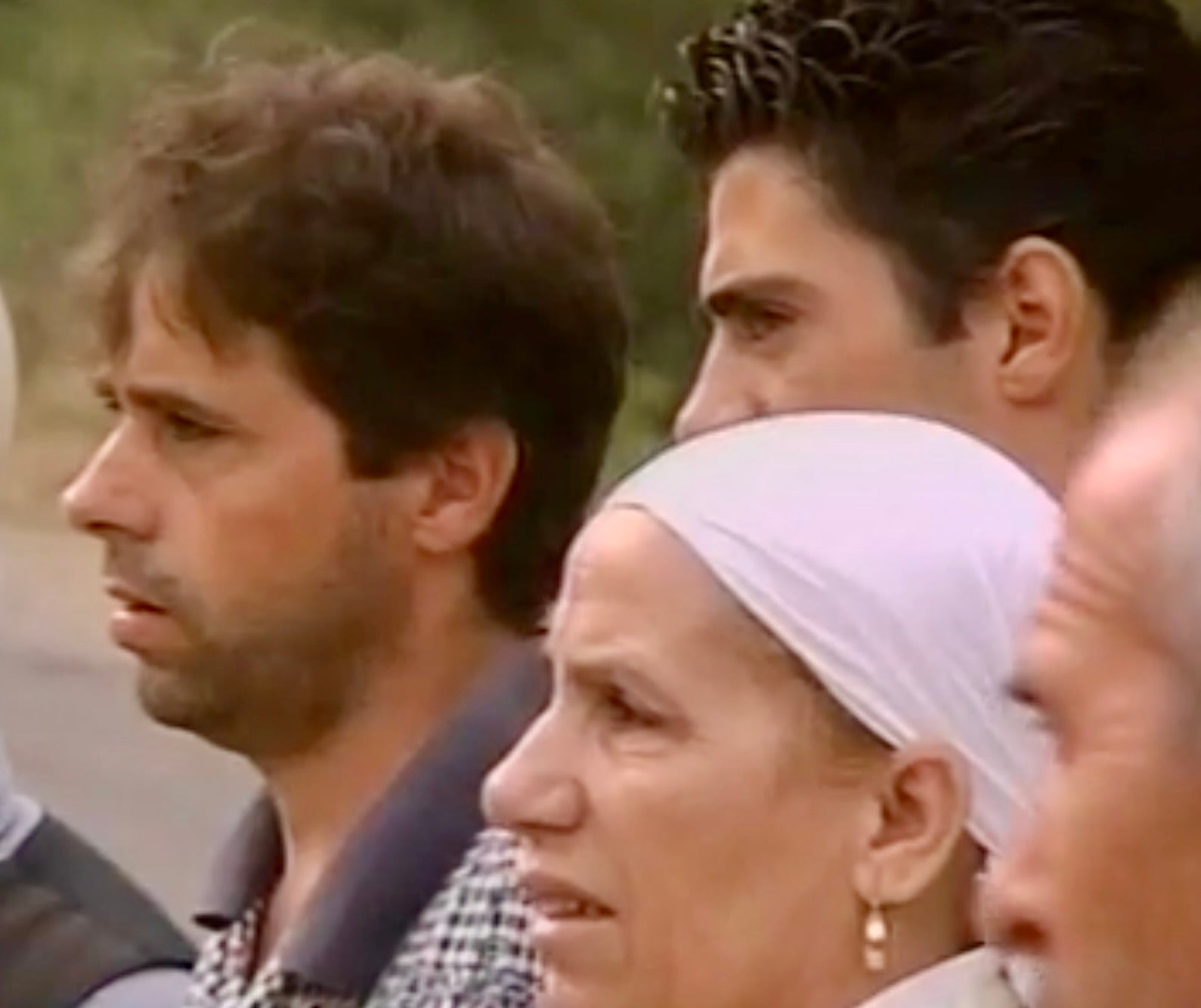
“So far we have estimated that there are 56 people in the cemetery behind me,” he tells the journalist. “They were killed at some stage during the atrocities of last year and now our task is to remove them and to take them to Pristina hospital where the remaining part of my team will be carrying out autopsies to determine the cause of death and the evidence then will be passed to the prosecutor in The Hague.”
In Ukraine, Russia has denied carrying out war crimes and has claimed with zero evidence that the killings in Bucha and other places were staged by the Ukrainian authorities to disparage Moscow.
Turnbull says the same thing happened in the Balkans, with Serb leaders Slobodan Milošević and Mladić denying they had ordered the massacre at Srebrenica.
After he lost power in 2000 and Serbia sought entry to the EU, Milošević would be handed over to UN.
“Neither Serbia nor I have anything to do with these events in Srebrenica,” Milošević told the International Criminal Tribunal for the former Yugoslavia, established by the UN, where he denied charges of crimes against humanity.
He died in his cell in 2006 before a verdict was reached.
Mladić, now aged aged 79, was arrested in 2011 and charged with crimes against humanity and genocide, claims he also denied. He was found guilty in 2017 and sentenced to life imprisonment.
Turnbull says the investigators in Ukraine will now also be gathering evidence to try and bring charges not only against the troops who may have committed a war crime, but against those who issued the orders. He, like many other experts, recognise the process could take a long time.
“They will be looking at and collecting everything, video and cell phone data. We know the Ukrainians have been listening to phone calls made by the Russian troops,” he says. “They will have taken out of the airways.”
“All of these things will be gone through methodically. They will be attempting to identify the units involved. And because there’s so many eyes in the sky, they will be able to identify the units from the insignia on their vehicles.”
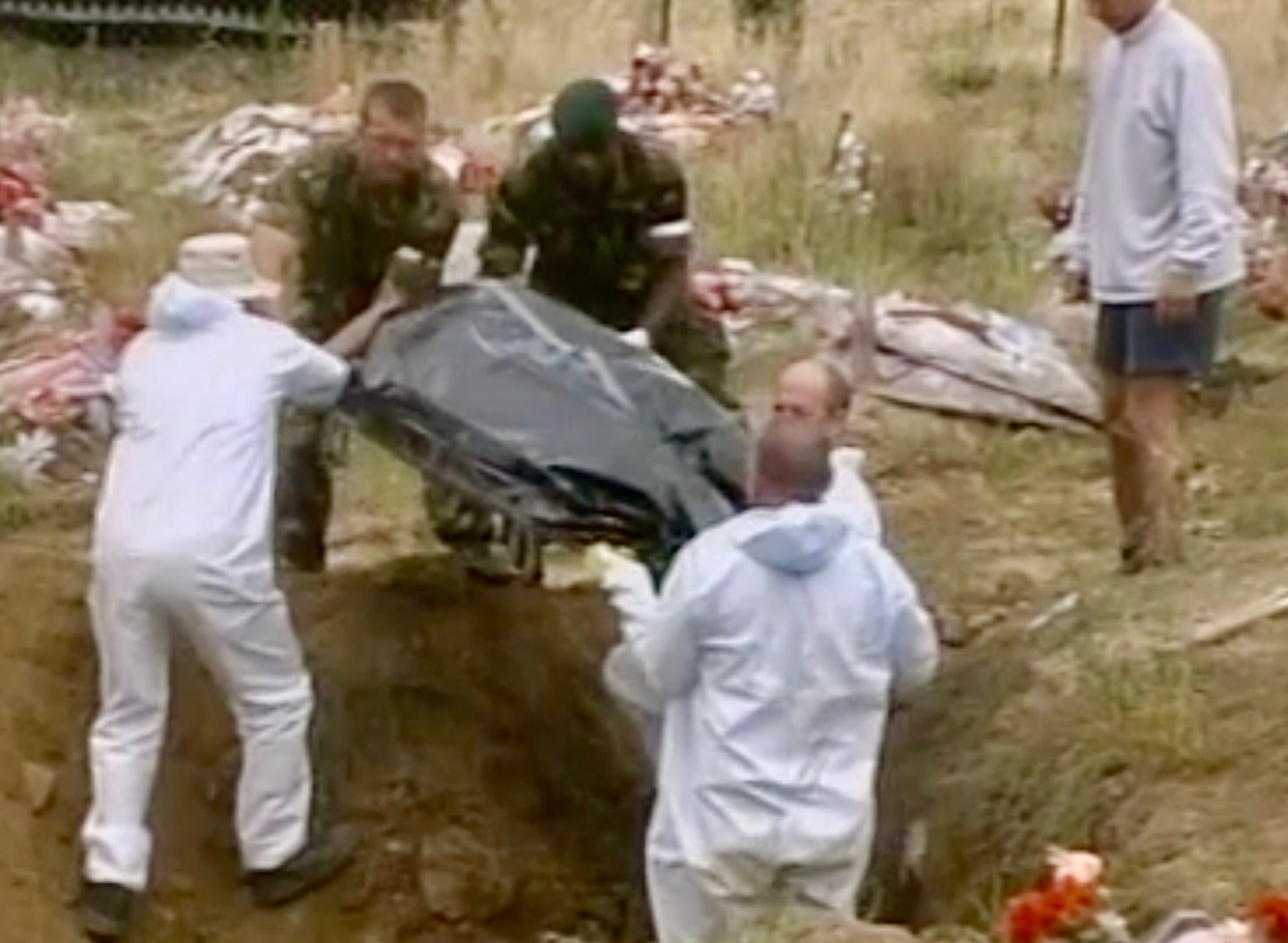
The investigators will then seek to identify who gave the orders to carry out such horrors.
“You don’t want to just have the squaddies that are involved, you want to go up the tree,” he says.
“And that’s what we were able to do in Kosovo with our analysis, and that’s why Milošević, Karadžić, and couple of their cronies were eventually identified, because [the orders] had to have come from a high position.”
In 2016, the Serb politician Radovan Karadžić, the so-called “Butcher of Bosnia” was also found guilty of war crimes and crimes against humanity. Karadžić, now aged 76, was sentenced to 40 years imprisonment.
How do investigators counter disinformation, as is seemingly being spread by Moscow about what is happening in Ukraine?
“You just have to rely on the evidence [and] the credibility of the witnesses that you bring forth into a court of law,” he says.
The Geneva Conventions prohibit the attacking of civilians in wartime. The killings of civilians in such instances is therefore a war crime.
“They’re not a combatant, they are not soldiers in uniform, they are not resisting, they’re civilians and they have human rights.”
Turnbull says that in every conflict, civilians can get killed. But it is the numbers and the repeated instances that transform such deaths in what was a clearly intentional policy.
Turnbull says it is “nonsensical” to believe that the kind of killings the world has witnessed in Bucha would have been perpetrated by Ukrainians on their own people.
From what he has seen of the incidents, does he believe they amount to war crimes?
“Without a doubt,” he says. “Without a doubt.”
Join our commenting forum
Join thought-provoking conversations, follow other Independent readers and see their replies
Comments

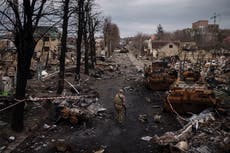
Bookmark popover
Removed from bookmarks